When erring is possible and doubt welcome
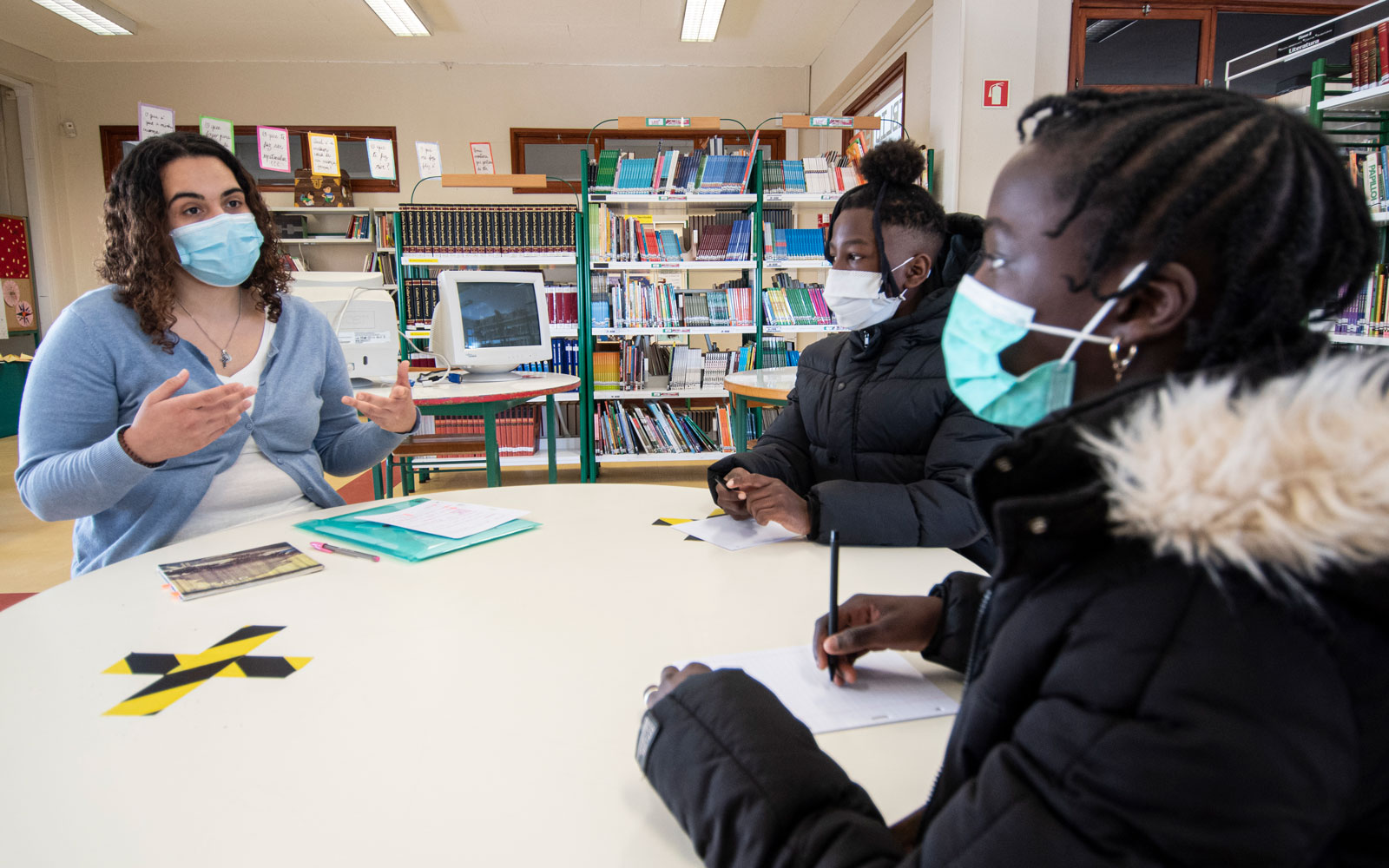
Denise and Sidney already walk around the school with a different attitude. Denise, a pre-adolescent with a kind look and a reserved personality, has come out of herself, laughing in the midst of her friends. Sidney, with rap running in his veins, is naturally more outgoing but with this return he can already get distracted in the middle of breaktime and lose the notion of time passing.
During the months of confinement, Denise and Sidney would appear more distraught as they made their way along deserted corridors and abandoned playgrounds at the Maria Keil Primary School in Loures. The children of “essential workers”, while the schools remained closed, Sidney and Denise continued with their in-person classes.
In 2020, in the first confinement, this was a different case. They had stayed at home, without any alternative and the isolation, the lack of support of teachers and stimulus from colleagues in class had dragged them back in terms of learning. For this reason (among others) they were now receiving support from Inês Gomes, a mentor from Teach for Portugal that twice per week brings them together and attempts to help them go further in their Portuguese studies through the GAP – Gulbenkian Learning program.
“The joy of living a fairy tale”
Inês got involved in this process by mere chance. A graduate in Philosophy and doing post-graduate studies in the Art of Writing and contemplating doing a Master’s Degree in the field of teaching, she has no presence on social networks. Her life rather goes through books. However, at Christmas 2020, a cousin asked her, as a present, to sign up to Instagram and follow her account. She did not imagine that the request would lead to her receiving a message and forwarding it to the campaign for mentor selection for Teach for Portugal and the opportunity to make up part of the GAP – Gulbenkian Learning project.
The entire process happened “with the kind of joy of living a fairy tale in which I was get directed towards what I wanted, to something with significance”, she explained today and now with 41 children and young people under her supervision. She provides support for Portuguese, helps them to recover the learning lost over the long periods of confinement, to minimise these losses and gain in confidence.
“It helps to play with the words”, explained Denise, a star at the STOP game. On that Wednesday in March, still under confinement, Denise, Inês and Sidney met up at the school library to read an excerpt from the book A Árvore, by Sophia, and come up with a solution to deal with the village being swallowed up by shadow.
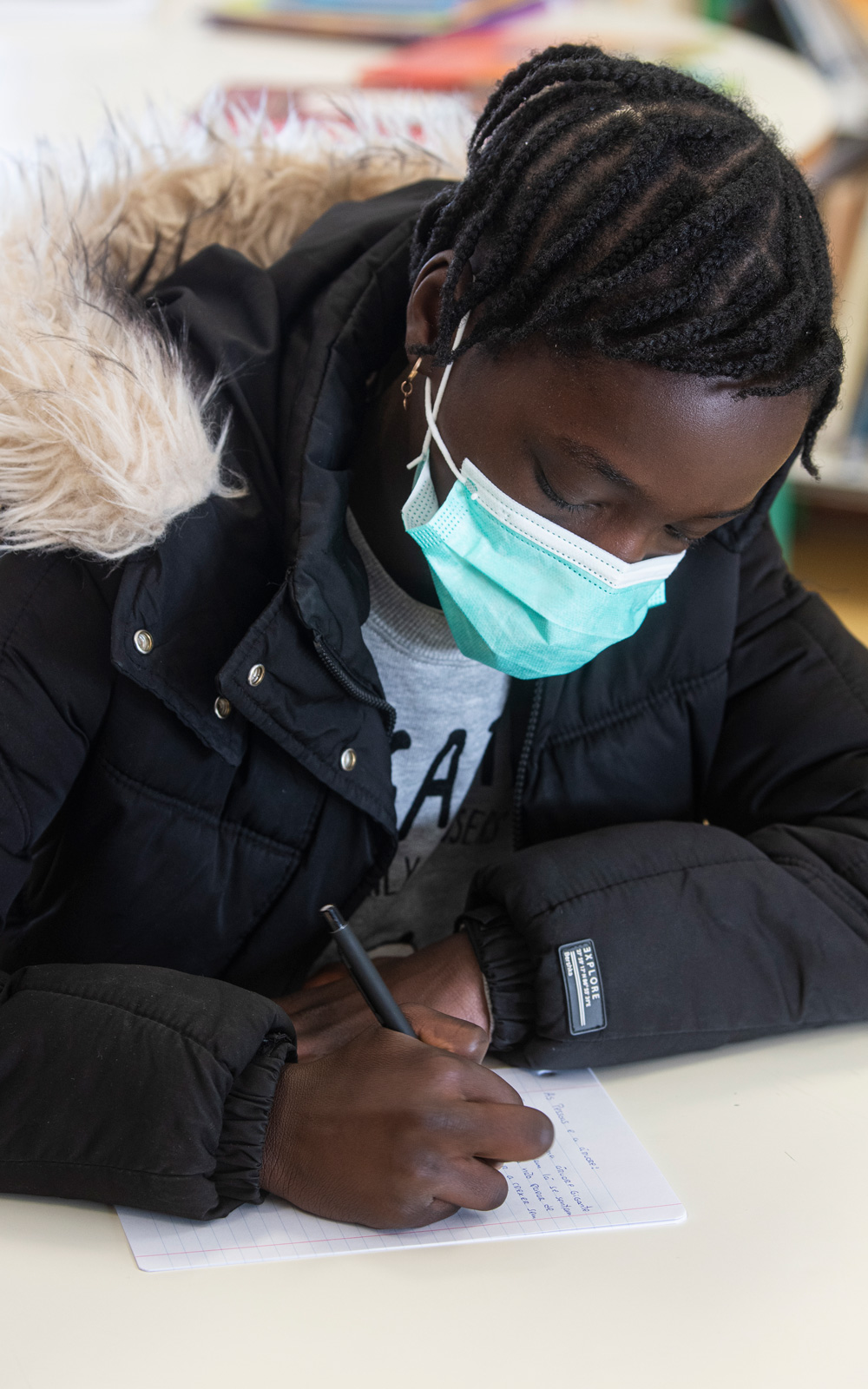
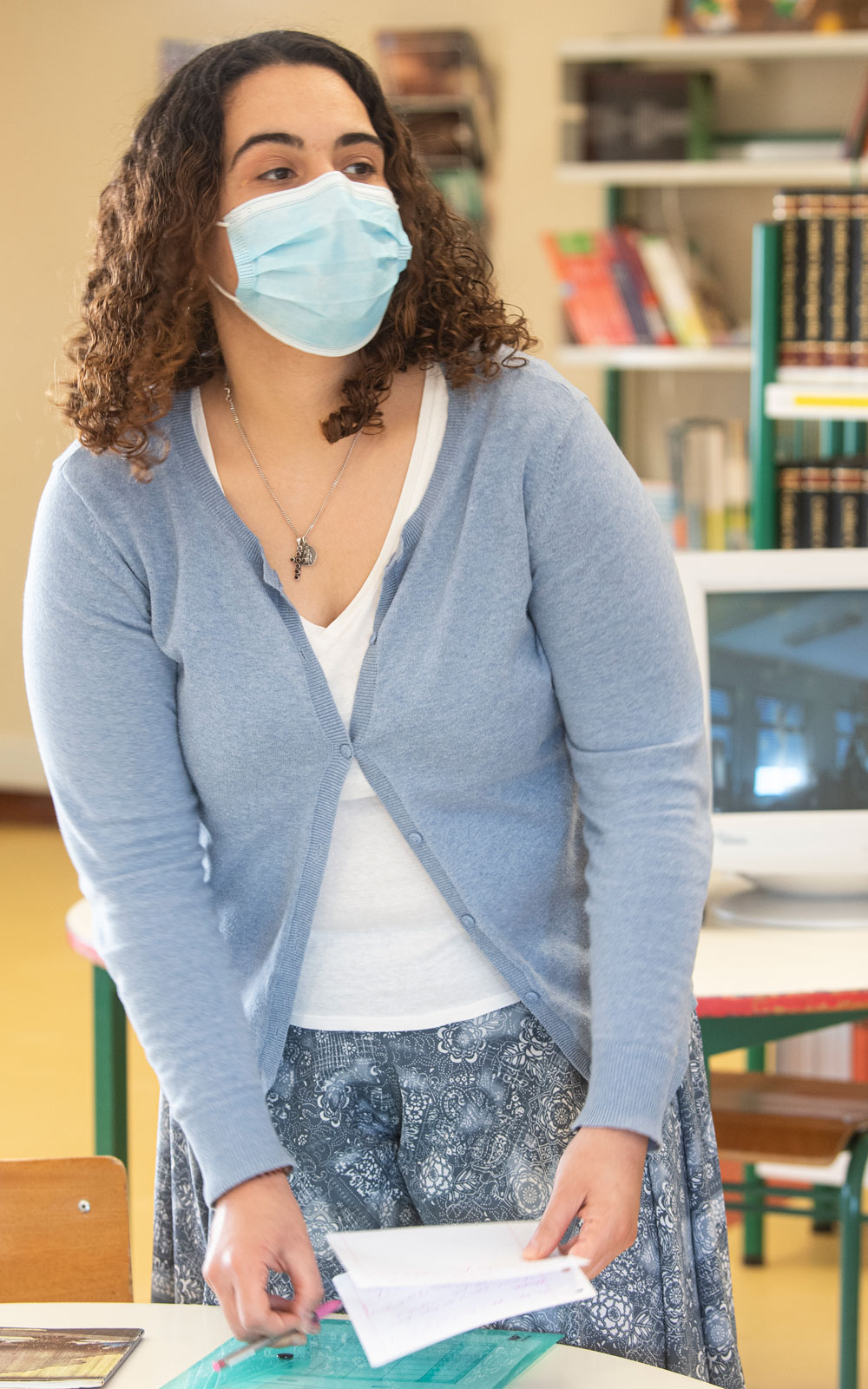
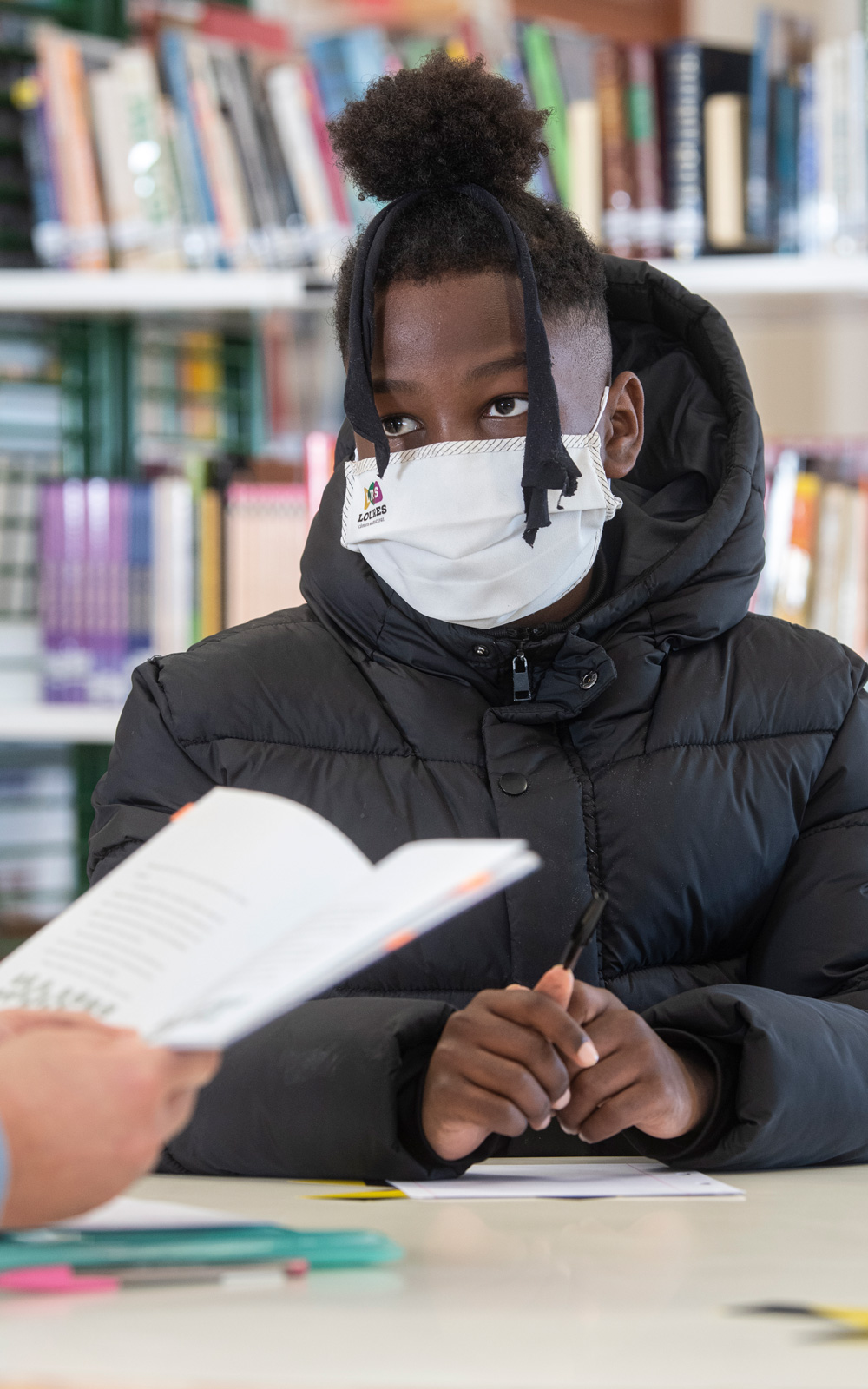
“Is anybody who gets on the wrong bus stupid?”
To continue the story begun by Sophia, Sidney did not adventure off into poetry as he always does whenever he can. In five lines, without any sign of punctuation, he pragmatically proposes that they might prune the tree. In turn, Denise, who headed her page with a “once upon a time”, ended up by proposing they expand the island. No option is either right or wrong. The objective is to stimulate creativity as “confinement does not only close the door to school – it also closes the door to imagination”, especially in children that “never leave their own communities”, the mentor explained, who was recently asked by one of her students, who lives with a view of the Tagus, “what is a river?”.
In addition to creativity, through games, Inês also stimulates reading, the interlinkage of ideas, beginning and ending sentences in ways that ensure they do not become meaningless. She also considers it highly important to approach issues around difficulties, fear of the unknown, errors, demystifying the idea that “whoever makes mistakes is stupid”. “Is anybody who gets on the wrong bus stupid? And what about people who put odd socks on, are they also stupid?”, Inês asks back.
Everything has its own framework, its own context. In the first session, when the mentor asked the two pre-adolescents to share some of the things that they like doing, things that they would like to do better and other things which they were no good at, she was surprised at a comment made in the end: no adult had ever before admitted in front of them that they did not know how to do something. Hence, it is fundamental, she said, to convey that they were not under scrutiny there. This was a time when making mistakes was possible and doubts were welcome. Only thus would they be able to move forwards.
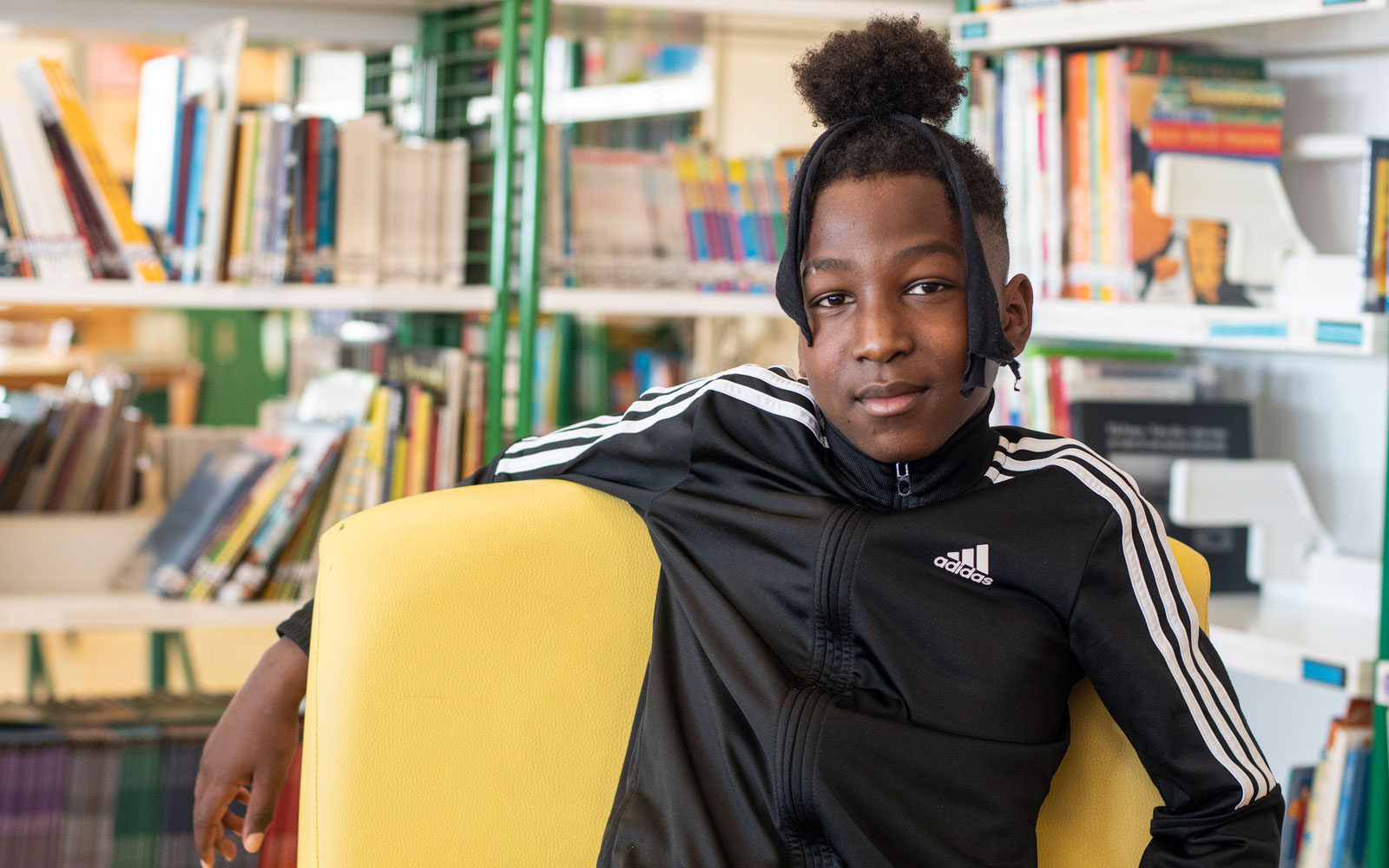
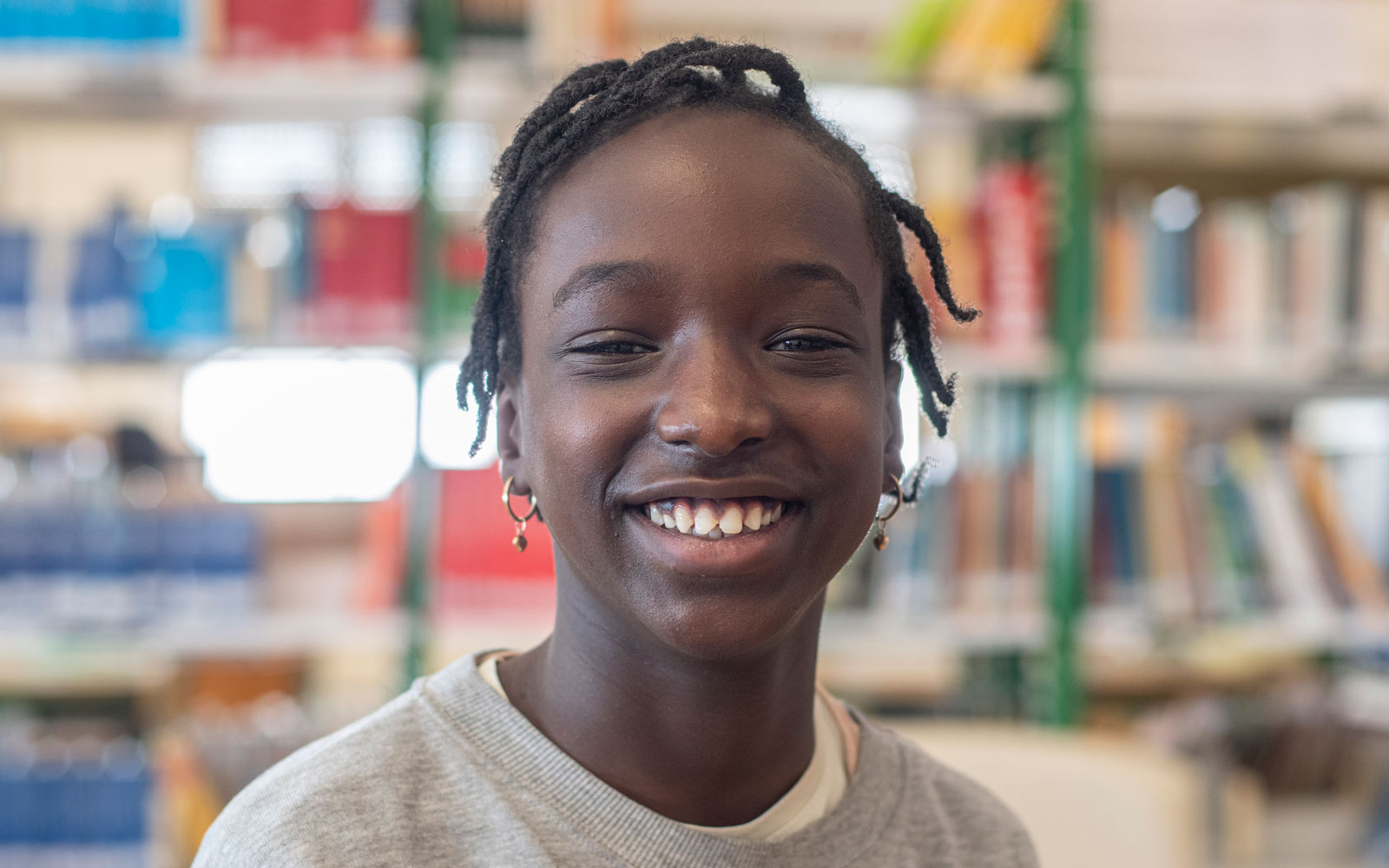
Denise, who dreams of going to France and learning to speak French, wants to be a doctor. For Sidney, the future lies in music – he wants to be a singer. Inês is with them to help them catch up in their studies of Portuguese but also so that they perceive they may always strive for more and to reach beyond their environment that does not always let them take such long term perspectives. Not by chance, the theme of the school that they go to every day seems tailor made: Invest in the present, believe in the future.
